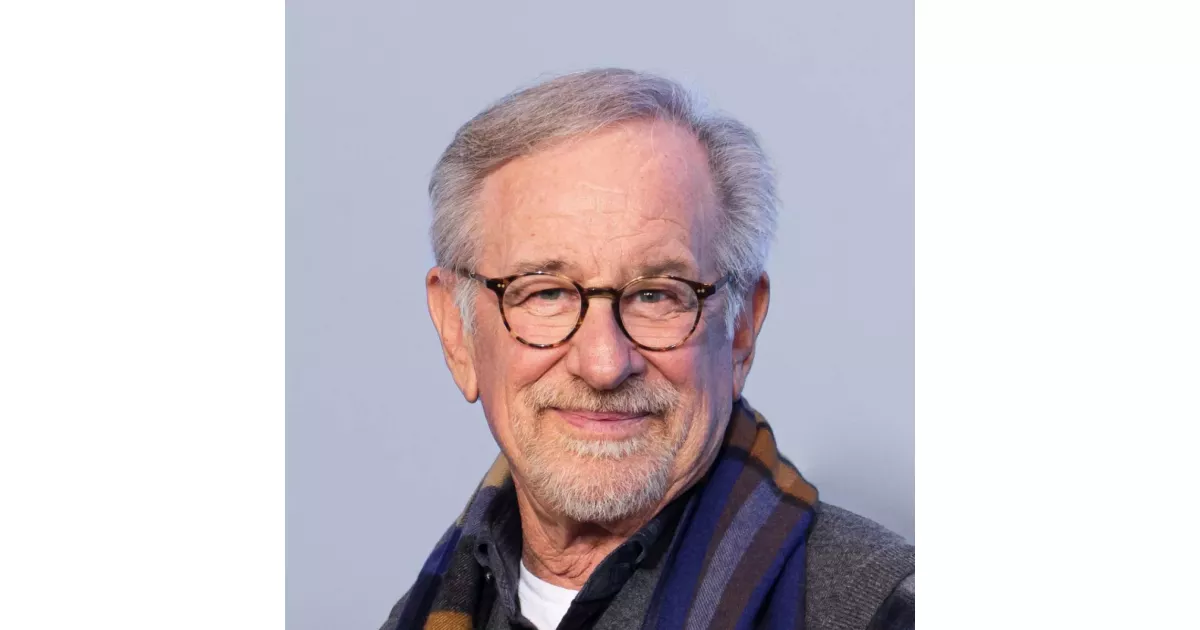How Steven Spielberg built a successful career. Explore key moments that defined the journey.
Steven Spielberg is a highly influential American filmmaker, recognized as one of the greatest directors in cinematic history and a key figure in the New Hollywood era. He is also the highest-grossing film director of all time. Known as a pioneer of the modern blockbuster, Spielberg's filmography includes numerous critically acclaimed and commercially successful films considered among the greatest and highest-grossing ever made.
1941: Setting of 1941 movie plot
The movie 1941, released in 1979, is about Californians preparing for a Japanese invasion after the attack on Pearl Harbor in 1941.
1975: Initial Discussion for Always
In 1975, Spielberg discussed the film Always with Dreyfuss. Twelve drafts were written before the film was released in 1989.
1977: Release of Close Encounters of the Third Kind
In 1977, Steven Spielberg and Richard Dreyfuss reunited for Close Encounters of the Third Kind, a film about UFOs. Spielberg employed 65 mm film and a new live-action recording system for the film. François Truffaut was cast as scientist Claude Lacombe, and Douglas Trumbull handled special effects. The film won Academy Awards for Best Cinematography and Best Sound Effects Editing and received positive reviews.
1979: Release of 1941
In 1979, Spielberg directed 1941, an action-comedy about Californians preparing for a Japanese invasion after Pearl Harbor. The film grossed over $92.4 million worldwide but received negative reviews.
1981: Release of Raiders of the Lost Ark
In 1981, Spielberg directed Raiders of the Lost Ark, starring Harrison Ford and Karen Allen. The film was shot in multiple locations and won Academy Awards for Best Art Direction, Best Film Editing, Best Sound, Best Sound Editing, and Best Visual Effects. It became the first film in the Indiana Jones franchise and was a box-office success.
1982: Release and Awards for E.T.
In 1982, E.T. the Extra-Terrestrial was released, grossing $700 million worldwide and winning four Academy Awards: Best Original Score, Best Sound, Best Sound Editing, and Best Visual Effects. Ronald and Nancy Reagan attended a special screening and were emotionally moved by the film.
1982: Release of E.T. the Extra-Terrestrial
In 1982, Spielberg released E.T. the Extra-Terrestrial, a science fiction film about a boy who befriends an alien. Spielberg avoided storyboards for spontaneity and shot the film in sequence for authentic performances. The film was well-received, and its premiere at the Cannes Film Festival led to audience members being emotionally touched.
1983: Production of Twilight Zone: The Movie
In 1983, Spielberg co-produced Twilight Zone: The Movie with John Landis and contributed the "Kick the Can" segment to the anthology film.
1984: Release of Indiana Jones and the Temple of Doom
In 1984, Spielberg directed Indiana Jones and the Temple of Doom, a prequel to Raiders of the Lost Ark. Filmed in multiple locations, the film was darker than its predecessor and led to the creation of the PG-13 rating. The film won the Academy Award for Best Special Effects and marked the meeting of Spielberg and his future wife, Kate Capshaw.
1984: Production of Gremlins
In 1984, Spielberg served as producer or executive producer on Gremlins for his production company, Amblin Entertainment.
1984: Kubrick suggests Spielberg direct A.I.
In 1984, Stanley Kubrick suggested that Spielberg direct A.I. Artificial Intelligence, believing the story was closer to Spielberg's sensibilities.
1985: Production of The Goonies, Back to the Future and The Color Purple
In 1985, Spielberg served as producer or executive producer on The Goonies and Back to the Future for his production company, Amblin Entertainment. Spielberg also began making films for Warner Bros, starting with The Color Purple, a drama based on Alice Walker's novel. It was Spielberg's first film on a dramatic subject matter, and it received eleven Academy Award nominations and Spielberg won Best Director from the Directors Guild of America.
1987: Release of Empire of the Sun
In 1987, Spielberg released Empire of the Sun, an adaptation of J. G. Ballard's autobiographical novel, filmed in Shanghai. Despite mixed reviews initially, the film received critical acclaim later on and was nominated for six Academy Awards. The film explores the story of a young boy in a Japanese internment camp during World War II.
1988: Production of Who Framed Roger Rabbit
In 1988, Spielberg served as producer or executive producer on Who Framed Roger Rabbit for his production company, Amblin Entertainment.
1989: Release of Indiana Jones and the Last Crusade
In 1989, Spielberg directed Indiana Jones and the Last Crusade, with the return of Lucas and Ford. Sean Connery was cast as Jones's father. The film received mostly positive reviews and was a box-office success.
1989: Release of Always
In 1989, Spielberg released Always, a romantic drama starring Richard Dreyfuss about an aerial firefighter. The film was commercially unsuccessful and received mixed reviews.
1989: Launched Cinematography Merit Badge
In 1989, Steven Spielberg helped the Boy Scouts of America develop a merit badge in cinematography. Also In 1989, Spielberg was presented with the Distinguished Eagle Scout Award.
1990: Production of Joe Versus the Volcano and Arachnophobia
In 1990, Spielberg served as producer or executive producer on Joe Versus the Volcano and Arachnophobia for his production company, Amblin Entertainment.
1991: Release of Hook
In 1991, Spielberg released Hook, starring Robin Williams, Julia Roberts, and Dustin Hoffman. Despite clashes on set and mixed reviews, the film earned over $300 million worldwide.
March 1, 1993: Filming Commences for Schindler's List
On March 1, 1993, filming for Schindler's List began in Poland while Spielberg was still editing Jurassic Park in the evenings. Spielberg brought his family to make filming more bearable.
1993: Release of Jurassic Park
In 1993, Spielberg released Jurassic Park, based on Michael Crichton's novel. The film utilized computer-generated imagery and became the highest-grossing film at the time, winning three Academy Awards.
1994: Spielberg sets up DreamWorks and takes a break from directing
In 1994, Spielberg took a break from directing to spend more time with his family, and set up his new film studio, DreamWorks, with Jeffrey Katzenberg and David Geffen.
1995: Received AFI Life Achievement Award
In 1995, Steven Spielberg received the AFI Life Achievement Award.
May 1997: Release of The Lost World: Jurassic Park
In May 1997, The Lost World: Jurassic Park was released, becoming one of the highest grossing films of the year. The film is a sequel to Jurassic Park and features more realistic onscreen creatures.
1997: Release of Amistad
In 1997, Spielberg's film Amistad, based on the 1839 events aboard the slave ship La Amistad, was released under DreamWorks. The film struggled to find an audience and underperformed at the box office.
1998: Release of Saving Private Ryan
In 1998, Spielberg released Saving Private Ryan, a World War II epic. The film was praised for its direction and realistic portrayal of war and was a box office success.
1998: Awarded Order of Merit of the Federal Republic of Germany
In 1998, Steven Spielberg was awarded the Order of Merit of the Federal Republic of Germany by President Roman Herzog in recognition of Schindler's List and his work with the Shoah Foundation.
August 1999: Spielberg and Hanks awarded Distinguished Public Service Medal
In August 1999, Steven Spielberg and Tom Hanks were awarded the Distinguished Public Service Medal from the Secretary of Defense William S. Cohen for their work on Saving Private Ryan.
1999: Awarded Medal for Distinguished Public Service
In 1999, Steven Spielberg was awarded the Medal for Distinguished Public Service and an award for Outstanding Directorial Achievement in Motion Pictures by the Directors Guild of America for Saving Private Ryan.
December 31, 1999: Directed 'The American Journey'
On December 31, 1999, Steven Spielberg directed an 18-minute film titled "The American Journey", scored by John Williams, for the USA Millennium celebrations. It was shown at America's Millennium Gala in Washington, D.C.
2001: Release of A.I. Artificial Intelligence
In 2001, Spielberg released A.I. Artificial Intelligence, a loose adaptation of Brian Aldiss's short story. The film revolves around an android who dreams of being a "real boy" and grossed $236 million worldwide.
2002: Releases of Minority Report and Catch Me If You Can
In 2002, Spielberg released both Minority Report, based on Philip K. Dick's short story, and Catch Me If You Can, based on the autobiography of Frank Abagnale. Both films were commercially successful.
2004: Release of The Terminal
In 2004, Spielberg released The Terminal, a comedy inspired by the story of Mehran Karimi Nasseri and Jacques Tati's Playtime.
2004: Tom Shone's quote on Spielberg's influence
In 2004, film critic Tom Shone praised Steven Spielberg's work, stating that the medium of film was most fully itself in his work over the last twenty-five years.
December 2005: Sale of DreamWorks to Viacom
In December 2005, Spielberg and his partners sold DreamWorks to media conglomerate Viacom.
2005: Release of War of the Worlds
In 2005, Spielberg directed War of the Worlds, based on H. G. Wells's novel. The film was a box-office hit.
2005: Release of Munich
In 2005, Spielberg's Munich, about the Israeli government's retaliation after the 1972 Munich massacre, was released. The film garnered mostly positive reviews but was also one of Spielberg's most controversial films.
February 2006: Finalization of DreamWorks sale
In February 2006, the sale of DreamWorks to Viacom was finalized.
June 2006: Spielberg abandons Interstellar project
In June 2006, Spielberg planned to make Interstellar, but abandoned the project.
July 15, 2006: Awarded Gold Hugo Lifetime Achievement Award
On July 15, 2006, Steven Spielberg was awarded the Gold Hugo Lifetime Achievement Award at the Summer Gala of the Chicago International Film Festival.
February 20, 2007: Fundraiser for Barack Obama
On February 20, 2007, Steven Spielberg, Jeffrey Katzenberg, and David Geffen hosted a fundraiser for Barack Obama, inviting Democrats to attend.
2007: Fundraiser for Barack Obama
On February 20, 2007, Steven Spielberg, along with Jeffrey Katzenberg and David Geffen, invited Democrats to a fundraiser for Barack Obama.
February 2008: Received Visual Effects Society Lifetime Achievement Award
In February 2008, Steven Spielberg received the Visual Effects Society Lifetime Achievement Award for his contributions to the visual effects industry.
June 2008: Received Hugh Downs Award
In June 2008, Steven Spielberg received Arizona State University's Hugh Downs Award for Communication Excellence.
September 2008: Supported same-sex marriage in California
In September 2008, Steven Spielberg and his wife offered their support to same-sex marriage in California by donating $100,000 to the "No on Proposition 8" campaign fund.
2009: Awarded Cecil B. DeMille Award
In 2009, Steven Spielberg was awarded the Cecil B. DeMille Award by the Hollywood Foreign Press Association for "outstanding contributions to the world of entertainment".
2009: Spielberg begins work on The Adventures of Tintin
Starting in 2009, Spielberg began shooting the first film in a planned trilogy of motion capture films based on Hergé's The Adventures of Tintin.
December 21, 2011: North American Release of The Adventures of Tintin
On December 21, 2011, The Adventures of Tintin: The Secret of the Unicorn was released in North American theaters. The film received generally positive reviews.
2016: Endorsed Hillary Clinton
In 2016, Steven Spielberg endorsed Hillary Clinton in the presidential election and donated $1 million to Priorities USA Action.
2018: Donated to March for Our Lives
In 2018, Steven Spielberg and his wife donated $500,000 to the March for Our Lives student demonstration in favor of gun control in the United States.
December 2023: Shoah Foundation collected testimonies after Hamas attack
In December 2023, after the Hamas-led attack on Israel, the Shoah Foundation, founded by Spielberg, gathered over 100 video testimonies from those who experienced the attacks to add to the collection of "Holocaust survivor and witness testimony." Spielberg expressed shock at the barbarity and emphasized the importance of preserving these stories.
Mentioned in this timeline
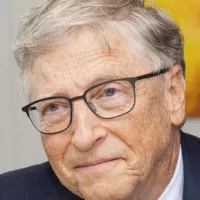
Bill Gates an American businessman and philanthropist revolutionized personal computing...

Oprah Winfrey is an influential American talk show host television...
Home Box Office HBO is an American pay television service...
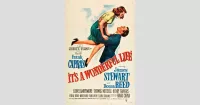
It's a Wonderful Life directed by Frank Capra tells the...
Ukraine is a country in Eastern Europe the second-largest on...

Bill Clinton the nd U S President - served as...
Trending
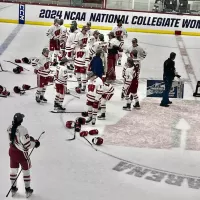
1 hour ago USA Women's Hockey Olympic Win Over Italy Marred by Heated Play and Officiating
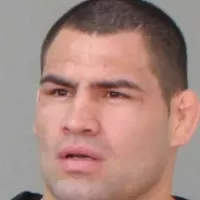
1 hour ago Cain Velasquez Granted Early Parole, Announces Mental Reset Seminar Plans Post-Release.

1 hour ago Miles Teller stars in Apple TV's 'Eternity': Ending, review, and similar rom-coms.

2 hours ago The Highwomen Return: Carlile, Crow, Judd, and Spencer Reunite for Canyon Performances.

2 hours ago Raphael Veiga's game impresses fans; Adapts to Mexico after leaving Palmeiras.
2 hours ago Jalen Williams Injury Scare: Thunder Re-evaluating Hamstring After All-Star Break
Popular

Kid Rock born Robert James Ritchie is an American musician...

Pam Bondi is an American attorney lobbyist and politician currently...
Randall Adam Fine is an American politician a Republican who...

Barack Obama the th U S President - was the...
The Winter Olympic Games a major international multi-sport event held...

XXXTentacion born Jahseh Dwayne Ricardo Onfroy was a controversial yet...
